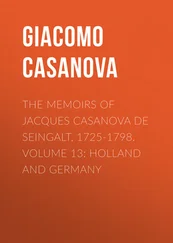Emile Dillon - England and Germany
Здесь есть возможность читать онлайн «Emile Dillon - England and Germany» — ознакомительный отрывок электронной книги совершенно бесплатно, а после прочтения отрывка купить полную версию. В некоторых случаях можно слушать аудио, скачать через торрент в формате fb2 и присутствует краткое содержание. Жанр: foreign_antique, foreign_prose, на английском языке. Описание произведения, (предисловие) а так же отзывы посетителей доступны на портале библиотеки ЛибКат.
- Название:England and Germany
- Автор:
- Жанр:
- Год:неизвестен
- ISBN:нет данных
- Рейтинг книги:3 / 5. Голосов: 1
-
Избранное:Добавить в избранное
- Отзывы:
-
Ваша оценка:
- 60
- 1
- 2
- 3
- 4
- 5
England and Germany: краткое содержание, описание и аннотация
Предлагаем к чтению аннотацию, описание, краткое содержание или предисловие (зависит от того, что написал сам автор книги «England and Germany»). Если вы не нашли необходимую информацию о книге — напишите в комментариях, мы постараемся отыскать её.
England and Germany — читать онлайн ознакомительный отрывок
Ниже представлен текст книги, разбитый по страницам. Система сохранения места последней прочитанной страницы, позволяет с удобством читать онлайн бесплатно книгу «England and Germany», без необходимости каждый раз заново искать на чём Вы остановились. Поставьте закладку, и сможете в любой момент перейти на страницу, на которой закончили чтение.
Интервал:
Закладка:
When this circular was published in Moscow the general director of the firm wrote to certain provincial newspapers pointing out that the company is American, not German. “It is curious,” a Russian journal remarks, “that an American firm should need a map containing all the villages and hamlets of the districts, with the number of their inhabitants, irrespective of the presence there of the company’s debtors.” 14 14 Novoye Vremya , 5/18 July, 1916.
CHAPTER IV
THE ANNEXATION MANIA
Another instructive example of the Annexation mania, as it displays itself in German commercial undertakings, comes to us from Russia.
It is only one of many, a typical instance of a recognized method. The Franco-Russian joint-stock company Provodnik is known throughout Europe. It manufactures tyres and other rubber wares. The capital, which amounted to only 700,000 roubles at the date of its foundation, in the year 1888, had increased to 22,000,000 by the time when war was declared. It is closely connected with another company named the Buffalo, which has its headquarters in Riga and was promoted by the President of the Provodnik, M. Wittenberg, together with several Austrian capitalists. M. Wittenberg is President of both companies, and the Provodnik has assisted the Buffalo on various occasions, even during the war, notwithstanding the fact that the shareholders of the Buffalo are mostly German subjects. On January 2, 1914, another company was created, this time in Berlin, and called the “German Provodnik.” Now, according to the instructions laying down the rights of the Board (Par. 24), wares may not be delivered on credit to any firm or institution for the value of more than 50,000 roubles, and not even to this amount unless the solvency of the recipient is beyond question.
In spite of this clearly marked limitation the Board of the Franco-Russian Provodnik, which exerted itself with unwonted zest to supply the German Provodnik with motor-tyres shortly before the war, opened a credit of 498,000 roubles in favour of this firm. The manager of the warehouses of the Riga products in New York is a German subject named Lindner. The managers in Zurich and Copenhagen are also German subjects. 15 15 Their names are Johann Assman and Rudolf Meyer. Cf. Novoye Vremya , 11/24 August, 1915.
It is not to be wondered at that countries like Italy and Russia, poor in capital and industry, fell an easy prey to the ruthless German invader, who, with the help of British, French, and even Italian and Russian savings, suffocated the nascent industries of the respective nations, killed foreign competition, earned large profits, obtained control of the country’s resources and an intimate knowledge of the political secrets of their respective Governments. “Many Germans,” wrote an Italian Review, 16 16 Rassegna Contemporanea.
“serving in Italian establishments are in possession of lists of the fortresses, measurements, distances, positions of the roads and footpaths, they have found the points of triangulation and acquired all requisite data and information about them. And to-morrow, should war break out, they will accompany and guide the German or Austrian invaders.”
How keen they are to make themselves conversant with matters of political moment in the guise of honest workmen is becoming fairly well known to day, although it may be taken for granted that if peace were concluded to-morrow these same commercial spies would find hospitality among some of the easy-going merchants of Great Britain, who still refuse to believe in the obvious danger or to act upon their belief. In November 1912 the Italian Minister of the Marine called for tenders for the supply of silver dinner-plate for the warships. At the critical moment, when the decision was about to be taken, the German firm of Hermann, which has its headquarters in Vienna, reduced its offer first by 18 per cent., then by 20, and finally by 20·13 per cent. in order to get the order. For the order carried with it, for the representative of the firm, Herr Forster, the permanent right of access to all naval arsenals of Italy. 17 17 L’Invasione tedesca in Italia , p. 171.
The naïveté of Italy in matters of this delicate nature stands out in jarring contrast to the habitual caution of that diplomatic nation, and has not yet been satisfactorily explained from the psychological point of view. One is puzzled to understand how, months after the present war had begun, the press of Genoa could announce that the supply of electric motors for the Italian marine and of ventilators for Italy’s fortified places on her eastern frontier had been adjudicated to two German firms, on the ground that their tenders were the lowest. 18 18 Op. cit. , p. 171.
One of the largest automobile and motor works in the German Empire is the Benz and Rheinische Automobil und Motoren Fabrik Actien Gesellschaft of Mannheim. It supplies the Kaiser with his cars and has branches everywhere. In Italy, too, it exists and flourishes. But there the great German firm is modestly disguised under the name of the Societá Italiana Benz. And it is so modest that in spite of its gorgeous warehouse in the Via Floria (Rome), of its luxurious head-office in the Via Finanze, of its well-equipped workshop for repairing and fitting and its little army of agents actively pushing the business all over Italy, its capital, all told, amounts only to 30,000 lire, or £1,000! The firm is managed by a German engineer whose kith and kin are fighting in the Kaiser’s army. And this German engineer, Herr Matt, has free access to the Italian War Minister, even now, 19 19 Cf. L’Idea Nazionale . The words “even now” refer to November 22, 1915, and may be equally true to-day.
when it is question of manufacturing projectiles; and he has continuous relations with the Italian Airmen’s Brigade.
Electricity in Italy, together with all its auxiliary trades and industries, was, like every other lucrative enterprise, in the hands of Germans and German Swiss. The names of the various company directors had the usual familiar Teuton sound. When the European conflict broke out it seemed for a moment as if all these German concerns must come to a sudden and dire end. But just as the German engineer Herr Matt, whose relatives are officers in the Kaiser’s army, has free access to the Italian War Minister and carries on his business in Italy as usual, so the electrical concerns had merely to change one or two adjectives in their trading names and were forthwith shielded from harm. A case in point which is valuable because typical occurred recently. The Italian Electro-technical Association published a list of the manufacturers of electric machines and requisites in Italy, and by way of introduction set down the following patriotic remarks: “This list is addressed to those who at the present moment feel it to be their duty to uphold and encourage the production and development of materials for electricity. Importation from abroad, which we favoured when Italian industry was still in an embryonic stage, degenerated especially in consequence of the action of the Germans , into a veritable conquest of the markets; and no weapon, licit or illicit, was spurned to destroy our sources of production, and suffocate our nascent initiative.”
These are pathetic words. They are calculated to appeal with force to the Italian who loves his country. But when one looks more closely into the list of Italian producers one is disappointed to find the same familiar names as before: 20 20 Felix Deutsch, Karl Zander, Otto Joel, Karl von Siemens, Walter Boveri, Karl Kapp, etc.
Allgemeine Electricitäts Gesellschaft, Thomson Houston, the Mannesmann Tubes Co., the Italian Brown Boveri Co., etc. The nationalist Italian press organ which first directed public attention to these German subtleties asks pertinently: “Were not and are not the real producers named in this list the same who were the prime movers in the deplorable foreign conquest of the Italian market?” 21 21 L’Idea Nazionale , September 8, 1915.
Интервал:
Закладка:
Похожие книги на «England and Germany»
Представляем Вашему вниманию похожие книги на «England and Germany» списком для выбора. Мы отобрали схожую по названию и смыслу литературу в надежде предоставить читателям больше вариантов отыскать новые, интересные, ещё непрочитанные произведения.
Обсуждение, отзывы о книге «England and Germany» и просто собственные мнения читателей. Оставьте ваши комментарии, напишите, что Вы думаете о произведении, его смысле или главных героях. Укажите что конкретно понравилось, а что нет, и почему Вы так считаете.












